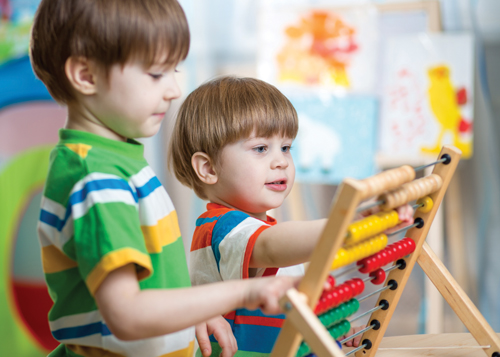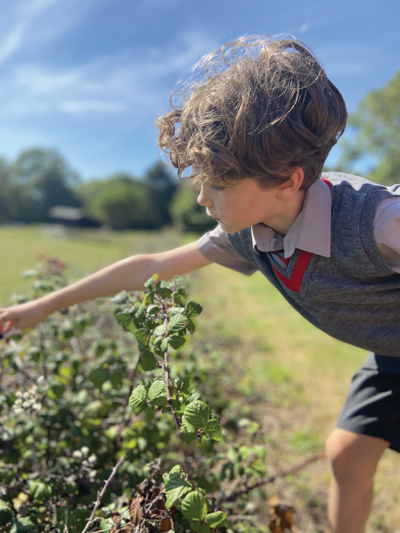
by Chris Gunn
Headmaster, Sompting Abbotts Preparatory School
At a time when children’s wellbeing is seemingly so constantly under attack, it has never been so important to seek the advantages of ‘The Great Outdoors’! Some of my fondest memories are of adventuring, exploring, and challenging myself in nature – I was never happier than when climbing trees, playing hide-and-seek with friends, soaking up picturesque views or exercising. I vividly remember the sense of accomplishment, motivation, and sheer joy at these times. I can still recall the slip and slide of mud and grass underfoot of past games of football, and feel the warmth of the sun on my back during picnics with family and friends.
In an ever-changing world burdened with social pressures and geo-political issues, the outdoors is a solace. A peaceful calm. It is both an outlet for anxiety and stress as well as one of the greatest resources we have access to for maintaining our positive mental wellbeing. We teach children strategies to improve their mental wellbeing, strategies which children can access and employ to cope with the many challenges and changes they will meet throughout their lives. In my opinion, visiting ‘The Great Outdoors’ is the most effective way to improve mental wellbeing, bar none. It is essential that we provide our children with plentiful opportunities to learn outside of the classroom so that they too have access to this wonderful, naturally healing resource.
I was reminded of the impact of the outdoors recently after a busy exam week. A group of children spent their Friday Activities playing a giant game of ‘capture the flag’ and team ‘hide-and-seek’. For many, the anxiety which the week had induced seemed to be lost and forgotten about in a heartbeat. The excitement of charging into space, to find a quiet spot out of view and the eyes of the opposing team; the anticipation of whether they would be found by a determined seeker; the sprint back to ‘base’ after the time was up. Children were children again. Laughing, panting, smiling. A sense of freedom and enthusiasm. A sense of relief.
The benefits of outdoor activities, such as orienteering, shelter-building, scavenger hunts, and wood whittling on children are unquantifiable. Not only do such activities teach valuable life-skills but they also highlight personal qualities and characteristics, which in turn will lead to better understanding of self and a greater likelihood of successes in the future. Direct links can clearly be drawn between those days outdoors, the skills we learn, and the people we become.
Resilience. Resilience to climb that tree a little higher, or to remain calm when getting back down again. Aspiration. Pushing for a personal best when running a race or vying for the win in a team sport. Self-esteem. To be successful when trying something new, or when involved in informal competition, can make such a difference to a pupil’s self-worth. Courage. Courage to explore, to try new things, or to stand up for and to protect the environment. To know and understand their own physical capabilities and boundaries and to push these a little further each time. Respect. Respect for the habitats, keeping ‘The Great Outdoors’ clean and tidy. Not having to be prompted to pick up a crisp packet, or litter. To protect wildlife and ecosystems, so that plants and animals can thrive. Compassion. Compassion for those who share the space. Wildlife, people, our opponents in sport. Integrity. Having a strong moral grounding of what needs to be done by the Government and local authorities to keep our green spaces and the planet happy and healthy. To compete within the rules of the game. It is these characteristics, that make a young person stand out from the crowd, that will enable them to inspire others.
It is only when outside regularly – walking, exercising, taking the dog out – you see the impact of the change of seasons. The leaves changing colour in the autumn, the first frost, the horse chestnuts, the birds flying south, the leaves beginning to fall. For children to experience first-hand the change in the seasons, to appreciate how fragile life is and get a sense of what they can do to help support the environment, is again of the upmost importance. Children will inevitably hear comments such as “The daffodils are coming up earlier this year” or “It hasn’t snowed for years,” but seeing it, investigating it, monitoring and testing it, enables children to see the impact of a change in our climate. It gives them a real understanding of the effects of greenhouse gases and why changes in our individual habits as well as large-scale changes in industry shape the way we live on and work with our planet Earth. The next generation of scientists, inspired by the outdoors.
I am fortunate enough to have two happy and healthy young sons. I have tried to refrain from using the term ‘outdoorsy’ however they love nothing more than to explore nature. Climb trees; splash in muddy puddles with their wellies on; have fun at the local rugby club. The fondest memories that they make are not whilst sitting in front of a tablet screen. They are out there – wherever that ‘out there’ might be. They are made through a sense of adventure, exploration and getting out into the fresh air. Stopping, standing, listening. That is the greatest ‘soul food’ of all.
Sompting Abbotts is a West Sussex preparatory school near Worthing for girls and boys aged 2 – 13. Tel: 01903 235960.
To find out more about what Sompting Abbotts can offer you, or to arrange a personal visit at any time of the school year, please visit www.somptingabbotts.com

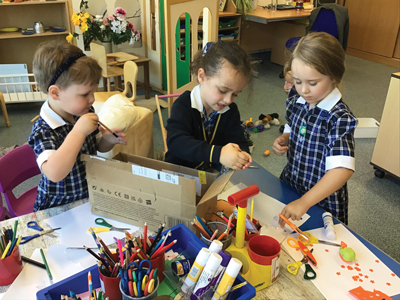
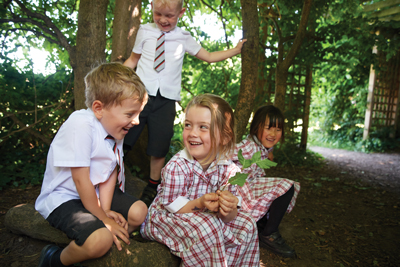
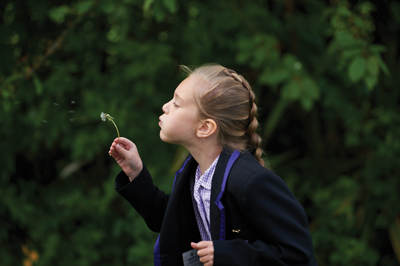
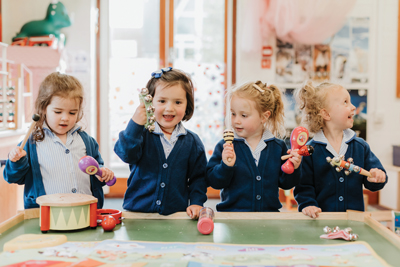
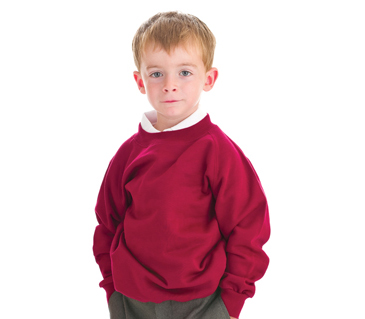
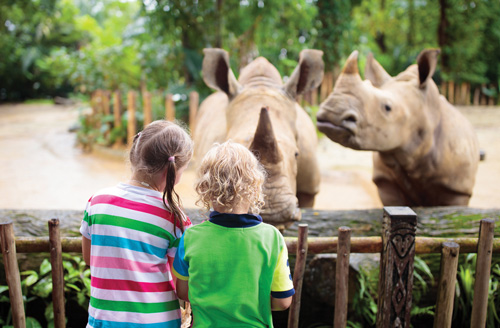


 isten when their siblings say no to them entering their room. Emphasising that we also want to respect other people’s boundaries and giving them the language around boundaries is also really helpful. A boundary might not always sound like the word “no”, it can be “That doesn’t work for me”, or “I don’t like the sound of that,” and when you understand that this is someone conveying their boundaries, not only do they have phrases to listen out for but they have the same phrases they can use themselves.
isten when their siblings say no to them entering their room. Emphasising that we also want to respect other people’s boundaries and giving them the language around boundaries is also really helpful. A boundary might not always sound like the word “no”, it can be “That doesn’t work for me”, or “I don’t like the sound of that,” and when you understand that this is someone conveying their boundaries, not only do they have phrases to listen out for but they have the same phrases they can use themselves.